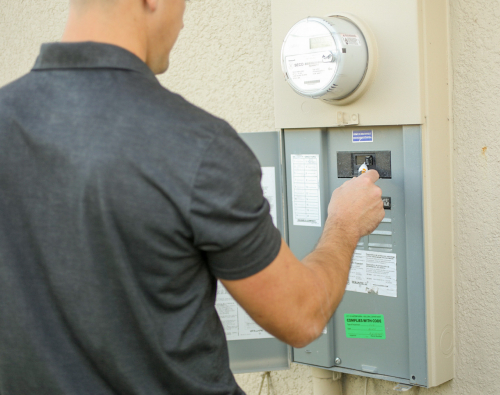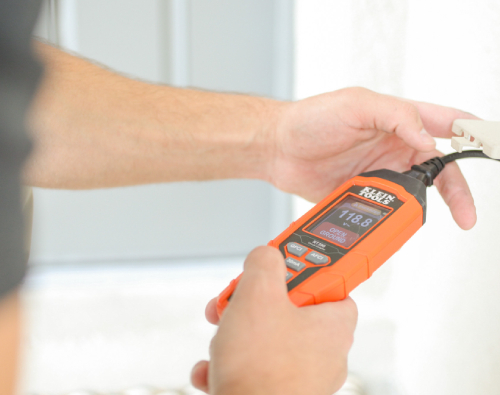The Importance of a 4 Point Inspection for Florida Homeowners: Protecting Your Property and Insurance

Living in the Sunshine State comes with its unique set of perks, from beautiful beaches to vibrant communities. However, Florida's climate and potential for severe weather also necessitate specific considerations for homeowners, particularly when it comes to insurance. This is where the importance of a 4 point inspection for Florida homeowners truly shines. Often a requirement for obtaining or renewing homeowners insurance on older properties, understanding what this inspection entails and why it's crucial can save you significant time, money, and potential headaches. This comprehensive guide will delve into the importance of a 4 point inspection for Florida homeowners, outlining its scope, benefits, and why it's an essential step in protecting your valuable investment.
Unpacking the Essentials: What is a 4 Point Inspection?
Before diving into the importance of a 4 point inspection for Florida homeowners, it's essential to understand exactly what this focused assessment entails. Unlike a comprehensive home inspection that examines numerous systems and components, a 4 point inspection specifically evaluates four critical areas of a home:
- HVAC (Heating, Ventilation, and Air Conditioning) System: This section assesses the age, condition, and functionality of your heating and cooling systems. Inspectors will look for the type of system, its apparent condition, and whether it appears to be safely operating. Insurance companies are particularly interested in the age of the HVAC system, as older units are more prone to failure and potential hazards.
- Electrical Wiring and Panels: The electrical system is a major concern for insurers due to the risk of fire. The 4 point inspection will examine the type of wiring present (e.g., copper, aluminum), the condition of the visible wiring, and the age and condition of the electrical panels, including their capacity and any visible safety issues. Homes with older or problematic wiring types may face challenges in securing insurance.
- Plumbing Connections and Fixtures: Water damage is a significant cause of insurance claims in Florida. The 4 point inspection focuses on the visible plumbing connections, fixtures (sinks, toilets, showers), and the type of piping present. Inspectors will look for signs of leaks, corrosion, and the overall condition of the plumbing system. Older plumbing materials are often scrutinized due to their increased risk of failure.
- Roof: The roof is the first line of defense against Florida's intense sun and heavy rains. The 4 point inspection assesses the age, material, and overall condition of the roof. Inspectors will look for visible damage, leaks, missing shingles, and the estimated remaining lifespan of the roof. A roof nearing the end of its expected life can be a major concern for insurers.
Why is a 4 Point Inspection So Important for Florida Homeowners?
The importance of a 4 point inspection for Florida homeowners stems primarily from insurance requirements, particularly for homes that are typically 25 years or older. Insurance companies often require this focused inspection to assess the risk associated with these key systems before issuing or renewing a policy. Here's why this inspection holds such significance:
- Insurance Eligibility: For many older homes in Florida, a satisfactory 4 point inspection is a prerequisite for obtaining homeowners insurance. Insurers want to ensure these critical systems are in reasonably good condition and pose a minimal risk of future claims.
- Risk Assessment for Insurers: The 4 point inspection provides insurance companies with a snapshot of the potential risks associated with the property's most claim-prone systems. This allows them to make informed decisions about coverage and pricing.
- Identifying Potential Issues Early: While not as comprehensive as a full home inspection, the 4 point inspection can still uncover existing problems or potential issues with the HVAC, electrical, plumbing, or roof systems. Addressing these issues proactively can prevent more significant damage and costly repairs down the line.
- Negotiating Power (for Buyers): If you're purchasing an older home in Florida, a 4 point inspection can be a valuable tool during negotiations. Identifying deficiencies in these key systems can provide leverage to request repairs or a price reduction from the seller.
- Peace of Mind: Even for current homeowners, a 4 point inspection can offer peace of mind by confirming the good condition of these vital systems or highlighting areas that may need attention in the future.
Understanding the Limitations: What a 4 Point Inspection Doesn't Cover
While understanding the importance of a 4 point inspection for Florida homeowners is crucial, it's equally important to recognize its limitations. This focused inspection does not cover:
- Structural Components (Foundation, Walls, etc.): The inspection does not assess the overall structural integrity of the home.
- Appliances: Built-in or standalone appliances are not typically included.
- Cosmetic Issues: Minor cosmetic flaws are not part of the assessment.
- Environmental Concerns (Mold, Pests, etc.): These require separate, specialized inspections.
- Detailed Operational Testing: While the inspector will generally check if systems turn on, they won't perform in-depth operational testing or assess efficiency.
Therefore, while a 4 point inspection is vital for insurance purposes on older homes, it should not be considered a substitute for a comprehensive home inspection, especially for buyers.
Navigating the Process: What to Expect During a 4 Point Inspection
Knowing what to expect during a 4 point inspection can help you prepare and understand the process:
- Visual Examination: The inspector will primarily conduct a visual examination of the accessible components of the HVAC, electrical, plumbing, and roof systems.
- Documentation: The inspector will document their findings, often including photographs, in a standardized report form that is typically accepted by insurance companies.
- Focus on Age and Condition: The report will heavily emphasize the age and apparent condition of these four key systems.
- No Repairs: The inspector will not perform any repairs during the inspection.
- Duration: A 4 point inspection is generally shorter than a comprehensive home inspection, typically taking between one to two hours, depending on the size and complexity of the home.
The Consequences of a Poor 4 Point Inspection Report
Understanding the importance of a 4 point inspection for Florida homeowners also means recognizing the potential consequences of a report that identifies significant issues. A poor report can lead to:
- Difficulty Obtaining Insurance: Insurance companies may deny coverage or offer it at a significantly higher premium if the 4 point inspection reveals significant deficiencies in the key systems.
- Required Repairs: Insurers may require specific repairs or upgrades to the HVAC, electrical, plumbing, or roof systems before they will issue or renew a policy.
- Increased Costs: Addressing required repairs can be an unexpected and potentially significant expense for homeowners.
Protecting Your Investment: The Value of a Proactive Approach
Given the importance of a 4 point inspection for Florida homeowners and its impact on insurance eligibility and costs, a proactive approach is always recommended. Whether you're buying an older home or are a current homeowner facing insurance renewal, consider the following:
- Schedule a 4 Point Inspection: If your insurance company requires it or you own an older property, schedule a 4 point inspection with a qualified and experienced inspector.
- Address Identified Issues Promptly: If the inspection report identifies any deficiencies, address them as soon as possible to ensure insurance eligibility and prevent further damage.
- Regular Maintenance: Implement a regular maintenance schedule for your HVAC, electrical, plumbing, and roof systems to prolong their lifespan and minimize potential issues.
- Consider Upgrades: If your systems are nearing the end of their expected lifespan, consider upgrading them proactively. Newer systems are often more efficient and can be viewed favorably by insurance companies.
Conclusion: The Indispensable Role of the 4 Point Inspection in Florida Homeownership
In conclusion, the importance of a 4 point inspection for Florida homeowners, particularly those with older properties, cannot be overstated. It serves as a crucial tool for insurance companies to assess risk and for homeowners to understand the condition of their key systems. By understanding its scope, benefits, and limitations, and by taking a proactive approach to addressing any identified issues, Florida homeowners can navigate the insurance landscape more effectively, protect their valuable investment, and enjoy greater peace of mind in their Sunshine State homes. Don't underestimate the importance of a 4 point inspection for Florida homeowners – it's a vital step in responsible homeownership. Contact FL Pro Inspections today to schedule your comprehensive and reliable 4 point inspection.
.png)




